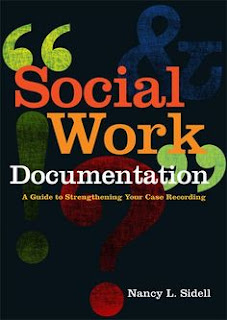Ageing Population and Social Security
The issue of social security to elderly people has been gaining its momentum to the discussion in developing countries like Nepal as the life expectancy is increased. Total morality rate of the people is reduced and human development index is increased. As the number of senior citizen has been increasing. It would natural concern to take care and providing essential goods and services to those senior citizens who can’t manage themselves and needs other support. The state should take responsibility to protect the rights of elderly by providing basic needs, and valuable experience, skill, knowledge and capacity could be mobilized. The state should promise social and economic security to these people. Nepal has adopted the definition of World Health Organization (WHO) to define Old as a person above 60 years of age.
Nepal is a poor country where old population is more likely to need state support in their old age. Realizing this, the Government of Nepal in 1994 introduced a non-contributory social assistance to old people, who are also referred as Senior Citizens, ageing population or elderly.
While population aging is one factor contributing to the growing old age destitution problem in rural areas of many developing countries, also important are the factors contributing to the weakening of family-based support networks such as the migration of young adults from rural to urban areas in search of jobs (Kakwani & Subbarao; 2005).
Most elderly in the Nepal rely on intra-family income support, which is coming under pressure through population aging, urbanization; reduce family linkages and socio-cultural change affecting family care patterns. The assessment of social and economic trends and review of old age allowance provision indicates challenges as well as opportunities. Old age allowance coverage rates tend to be very low in developing country, particularly in the rural areas. (Holzmann; 2004)
Old Age Allowance (OAA) involving budgeting support either in full or part, are considered as an important instrument for fulfill basic needs of the elderly people. (Mukul G. Astier). The old age allowance does not mean basic protection but also it is guarantee for maintaining living standard. It is expected to provide income security for ageing population.
Nepal is the first country in south Asia which declared social welfare programs in terms of old age allowance. Nepal’s old age allowance, a universal and non-contributory social pension is central pillar for the country’s social protection system. The government has built on this instrument success in tackling poverty, vulnerability and social exclusion to evolve and integrated system to cash transfers protecting many other vulnerable groups (Michal Samson).
The universal flat pension of Rupees 100 to all elderly people above 75 years was first announced in Nepal on 26 December 1994. Five districts from the five development regions of Nepal were selected on a pilot basis and the first disbursement of Old age Allowance Program (OAP) was made on 2ndJuly 1995 for a six- month period from January-June. It is interesting to note that only persons above 75 years of age were made eligible to receive Old Age Allowance (OAA), though the country defines old people as a person above 60 years of age. Availability of insufficient fund for the program was given as the reason for this variance.
Implementation of the pilot project in five districts was carried out by the Ministry of Education and Sports. OAA was distributed at the grass-root levels by the Village Development Committees (VDCs). During the fiscal year, 1995-96, OAP was expanded to the entire country and was administered by the Home Ministry. During 1995-96, an amount of Rs. 280 crores was released for the program implementation. Since 1996-97, the Ministry of Local Development (MLD) started administrating OAP. Allowances were distributed by Ward Offices of municipalities and Village Development Committees (VDCs). (Rajan: 2004). The allowance for elder was increased to Rs.500 per month from the Fiscal Year (FY) 2008-2009.
Aging is a natural process that begins at birth, or to be more precise, at conception, a process that progresses throughout one’s life and ends at death. According to “Towards Enriching Years” during the process of ageing, physical functions of the body slowly go down demanding greater coping skills on the part of the ageing person to adjust to the environment. In addition, there are problems caused by others in the society because of their unfavorable attitudes. Ageism, like sexism or racism, is a concept pertaining to prejudice or a negative attitude towards a particular group. Ageism implies that the old are perceived as sick, unhappy, empty and useless, and are discriminated against. The different renowned people defined old age on their own view. But for this research the aged people/old age people means “The people who are getting money from government as the name of Old Age Allowance”.





Comments
Post a Comment